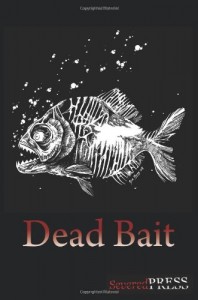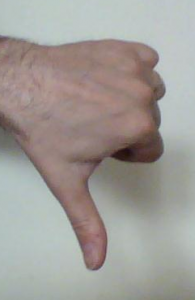In his 1947 essay “On the Writing of Speculative Fiction,” science fiction writer Robert A. Heinlein stated five rules for writing fiction. Here they are:
1. You must write.
2. You must finish what you write.
3. You must refrain from rewriting, except to editorial order.
4. You must put the work on the market.
5. You must keep the work on the market until it is sold.
 He went on to say that he didn’t much fear the new competition he’d face from putting these rules out in the open, since he figured half of those who claim they want to write won’t complete step 1, and half of the remainder wouldn’t finish step 2, and so on. Those of you working out the math should forget it–all those halves are just approximate.
He went on to say that he didn’t much fear the new competition he’d face from putting these rules out in the open, since he figured half of those who claim they want to write won’t complete step 1, and half of the remainder wouldn’t finish step 2, and so on. Those of you working out the math should forget it–all those halves are just approximate.
Heinlein’s rules are repeated all over the web and there has been much criticism of them. Some have said they sound too harsh, like Drill Sergeant Heinlein is shouting all those “MUSTs.” To those folks I’d ask–If your aim is to get your work published, which of those steps do you think you could skip, or kinda half-do? Really. Look back over them and tell me which rule could be softened in its wording.
The main criticisms target rule 3, “You must refrain from rewriting, except to editorial order.” Some assume Heinlein is telling writers to send their first draft out on the market. I doubt Mr. Heinlein meant that. I think rewriting the first draft until it’s acceptable is implicit in rule 2: “You must finish what you write.” It’s not likely to be really finished after a very rough, rapidly-scribbled first draft, even though you’ve reached “The End.” Heinlein means that you must declare the work finished and then refrain from the temptation to waste time endlessly trying to perfect the work, unless an editor has asked for revisions and you agree to them. As Heinlein also said elsewhere, “They didn’t want it good, they wanted it Wednesday.”
My own quibble with the rules concerns their order. As written, they are single steps to be executed in sequential order. The only loop in the process is within the final two steps, which basically say to send the manuscript out, and when you get a rejection, send the work–unchanged–to another market that same day. So if all the other steps are in sequential order, Rule 3 makes no sense as written. You haven’t sent the work out yet, so how could you have received a request from an editor for a rewrite? I say Rules 3 and 4 should be swapped.
The great writer Robert J. Sawyer has suggested adding a 6th rule, “Start Working on Something Else.” This is likely aimed at those who think their first story will make them famous and so wait breathlessly for word from the editor about acceptance or rejection. If you’re truly a writer, you can hardly wait to tackle the next project, so that’s when you start it. Unfortunately, Rule 6 would then be the only one focused on some other, next work while the rest of the rules concern a single story. Still, I concur with the intent, though I might have phrased it as, “Think of another story to write and go to step 1.”
I like Heinlein’s Rules. I think their commanding tone is a stentorian call summoning you to action and perhaps to greatness. Don’t think of them as overly harsh commandments that doom you to misery for the slightest deviation. They’re an invitation; get out there; don’t talk about it–do it! And they’re also a promise; follow these rules and you will get published. It’s hard to think of more inspiring words for a beginning writer.
Please let me know what you think. Also, remember that Heinlein wrote his rules about 65 years ago. Perhaps 65 years from now people will still be debating words written by–
Poseidon’s Scribe



